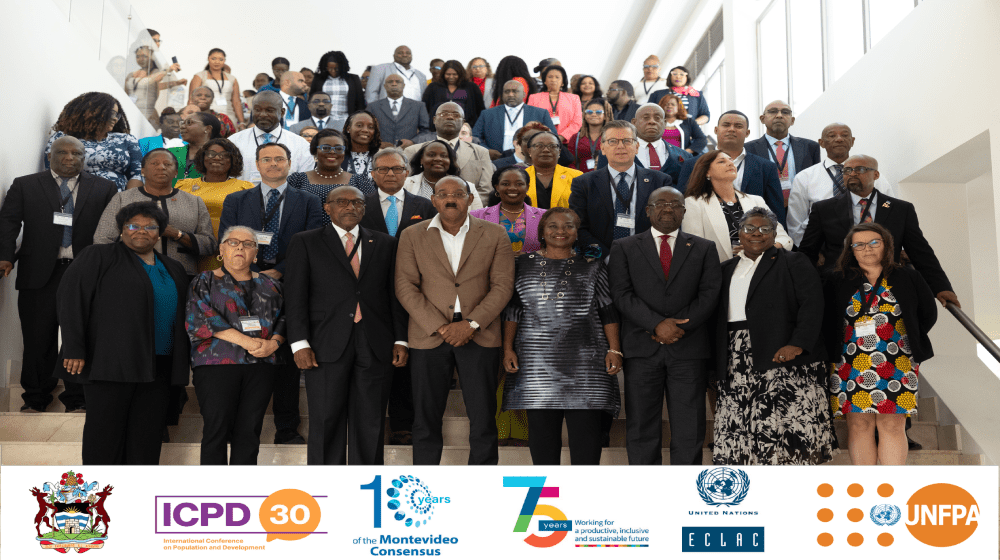Government officials, policy-makers, parliamentarians, academia, youth leaders and civil society organizations from across the Caribbean met in Antigua and Barbuda for the Caribbean Forum on Population and Development.
During the two-day forum, governments discussed emerging issues, challenges, shared lessons learned and best practices, and agreed on actions to accelerate the implementation of the Montevideo Consensus, the regional agenda for population adopted 10 years ago.
Review of progress in its implementation in turn will be the region's contribution to the worldwide 30-year review of the Programme of Action of the International Conference on Population and Development.
The event kicked off with an opening ceremony which featured remarks from Minister of Foreign Affairs, Agriculture, Trade and Barbuda Affairs Everly Paul Chet Greene; Dr. Natalia Kanem, UNFPA Executive Director of the United Nations Population Fund (UNFPA); and Diane Quarless, Director of the Subregional Headquarters of the United Nations Economic Commission for Latin America and the Caribbean (ECLAC).
The Minister of Foreign Affairs in his remarks assured of Antigua and Barbuda’s continued support and commitment to accelerate the implementation of the Montevideo Consensus, particularly in issues like adolescent pregnancy, GBV, migration, and demographic resilience. “Our country has shown its commitment to the 1994 ICPD and its Programme of Action and, by extension, the 2013 regional adaptation, the Montevideo Consensus on Population and Development”.
Minister Greene added, “Antigua and Barbuda have been successful in ensuring access to multisectoral services for survivors of gender violence through the operationalization of a one-step Support and Referral Centre and reducing teen pregnancy to twenty-eight per 1000 in 2020”.
Dr. Kanem noted in her remarks that Antigua and Barbuda has made significant progress in improving the lives of women and girls, including through the reduction in recent years of the adolescent pregnancy rate by half. She added that sexual and reproductive health and rights are central to a country’s prosperity and development. “What would the world look like if every person on the planet – all 8 billion of us, and women and girls in particular – had control over their bodies and their futures?", she asked. UNFPA believes the possibilities for individuals and their countries would be infinite.
Ms Quarless added that the forum provides the opportunity for Caribbean member States and associate members to take stock of demographic trends and their implications for public policy. The review is done every five years and “these meetings have provided us an opportunity to assess trends in infertility, mortality, migration, population size, composition, spatial distribution, and to do so in an integrated way”.
The Caribbean Forum was hosted by the Government of Antigua and Barbuda with support from ECLAC and UNFPA.


